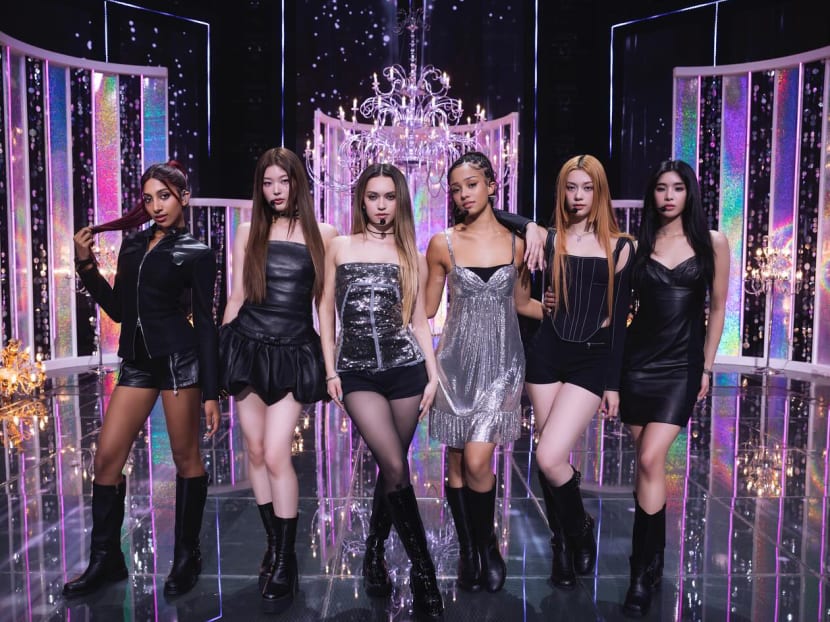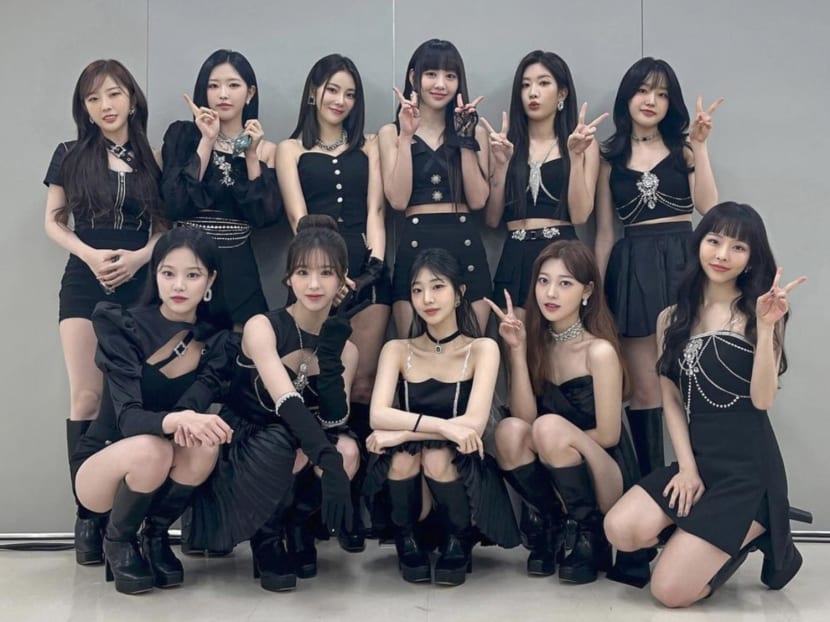Commentary: As a long-time K-pop fan, here's why I found Pop Star Academy: Katseye deeply problematic
When I started Netflix's new K-pop survival show, I knew what to expect: Heavy editing that pigeonholes contestants into archetypal roles; manufactured and exaggerated conflicts; and a public voting system.


This audio is AI-generated.
Upon release, Netflix's latest Korean music reality series drew much scrutiny for its manipulation and deception of contestants. As K-reality continues to surge in popularity all over the globe, this long-time K-pop fan asks: Should we as viewers so readily accept this kind of behaviour?
When Pop Star Academy: Katseye appeared on my Netflix recommendations one Saturday afternoon, I immediately clicked “play”.
The docuseries follows 20 trainees in the notoriously rigorous K-pop system as they compete for a spot in the lineup of a new global girl group, Katseye. Upon release, the show generated lots of buzz online and in Singapore, with one of the final members, Megan Skiendel, being half-Singaporean.
Being a long-time K-pop fan, I knew what to expect: Heavy editing that pigeonholes contestants into archetypal roles; manufactured and exaggerated conflicts; and a public voting system.
These are all par for the course of K-pop survival shows, but there were three aspects I found deeply problematic about Pop Star Academy in particular: The production crew’s blatant manipulation and deception of the contestants, their nonchalant dismissal of participants’ concerns, and their reductive justifications for their actions.
As Korean reality entertainment continues to surge in popularity all over the globe, this raises serious questions about recent sea changes in the ethical standards behind such entertainment and how these impact viewers.
What responsibilities do K-reality producers have to participants, and to spectators? For us audience members, how do these skewed presentations affect our personal perceptions of the very real people involved? Should we so readily accept this level of manipulation?
WHY DO WE LOVE THE DRAMA?
In her 2021 book Cultish: The Language of Fanaticism, American linguist Amanda Montell writes that we’re “hardwired to pay attention to stories of conflict”. K-reality taps into this by amplifying interpersonal drama with a sense of urgency and excitement to keep viewers hooked.
But in the world of K-pop, where intense fervour is part and parcel of the fandom experience, this approach becomes problematic when it encourages fans to view idols not as human beings, but as chess pieces vying for underhanded victory.
In the case of Pop Star Academy, eliminated contestants have spoken out about how production crew manipulated storylines and omitted important details surrounding what was portrayed onscreen as terse conflicts and frictions between the girls — a practice that’s become common on K-pop survival shows. This often leads devoted viewers of these shows to engage in heated fights online (e.g. “Contestant X is better than Contestant Y”) for reasons that don’t centre on idols’ performing talents.
Most unusually, though, the public voting was kept entirely secret from contestants. A producer admitted, on camera, to doing this to “up the ante”. When the truth came out, trainees were notably upset. One girl refused to continue training, and quit a week later.
The same producer was unfazed. It was necessary to “create drama”, she said, because “it’s entertainment”.
Some viewers praised the producer for saying the quiet part out loud: Unethical practices have become so normalised on K-reality shows that manipulation and deception are now integral parts of the process by design.
However, many others also called her out for doing nothing to change those unethical practices. In an entertainment landscape where toying with real people’s emotions and lives in service of creating drama is becoming increasingly normalised, her bluntness is part of the problem, they said. Not the solution.
NOT JUST ENTERTAINMENT
In a 2017 study on reality TV, experts from the University of Hong Kong found that “the more people that find the ideas in these shows to be ‘normal’, the bigger the overall impact these shows will have on society”.
By framing manipulation as a necessary element of entertainment, shows like this condition viewers to accept — and even expect — a level of unscrupulousness in what we watch.
Already the effect is palpable. On social media platforms like TikTok, scores of Pop Star Academy viewers were vocally nonchalant about the producers’ deception, saying that K-reality shows are “always like this”.
This level of desensitisation is harmful because it could negatively impact our expectations and standards for fairness in real life. The more we tell ourselves and each other “it’s just entertainment”, the more we risk eroding our ability to think critically about the media we consume.
If we unquestioningly accept unethical behaviours like those on Pop Star Academy, what does that also say about our willingness to guard against similar occurrences in the greater media landscape? For instance, will we also accept misinformation in the form of sensationalism and clickbait just because it’s more “entertaining” than factual news reporting?
The biggest danger of all might just be a widespread loss of empathy.
Repeated exposure to media portrayals of manipulation and deception can make us passive to these things in real life, especially in products explicitly labelled and marketed as “reality”. The same University of Hong Kong study noted that “a steady diet of watching people behaving badly increases our tolerance for rudeness, or even violence”.
It’s not just about thinking critically or analytically. It’s about our ability to empathise with and extend compassion to others — our very humanity.
WHAT CAN VIEWERS DO?
I fully understand the impulse to “switch your brain off” when settling down in front of the TV. I feel it too.
But when certain media trends begin altering our beliefs and behaviours, especially in ways that negatively affect ourselves and others, we have to start talking about how to hold ourselves to a higher standard.
In 2022, fans of K-pop group Loona staged a boycott that led to the successful termination of the members’ unfair contracts with now-defunct label Blockberry Creative. This is one example of how collective action can send a clear message that unethical practices will not be rewarded with consumer dollars.

We can call out problematic behaviours on public platforms such as social media, and demand transparency from both producers and distributors (I’m looking at you, Netflix).
As the key bankrollers of such content, advertisers should also be included in this scrutiny. Online, fans have already begun calling for advertisers to distance themselves from unethical productions or put financial pressure on decision-makers to toe the line.
Consider also deploying the strongest weapon in your arsenal: Your attention.
Discussing unethical production practices in certain shows isn’t enough. As the saying goes, there’s no such thing as “bad” press.
Stop watching K-reality shows that rely heavily and overtly on problematic tactics. Refrain from talking about them casually and uncritically on social media, and from spending money on related merchandise or other associated products.
The goal is not to punish anyone, but to move the media and entertainment needle that much further towards fairness, integrity, and respect for participants and viewers alike. More and more K-reality fans are already expressing hopes for such shows to return their focus to the talent and growth of competitors — which is how they’d rocketed to popularity in the first place.
Just because it’s “mindless entertainment” doesn’t mean we have to be “mindless” viewers.
ABOUT THE AUTHOR:
Maelyn Lagman currently leads content strategy at a Singapore startup.








